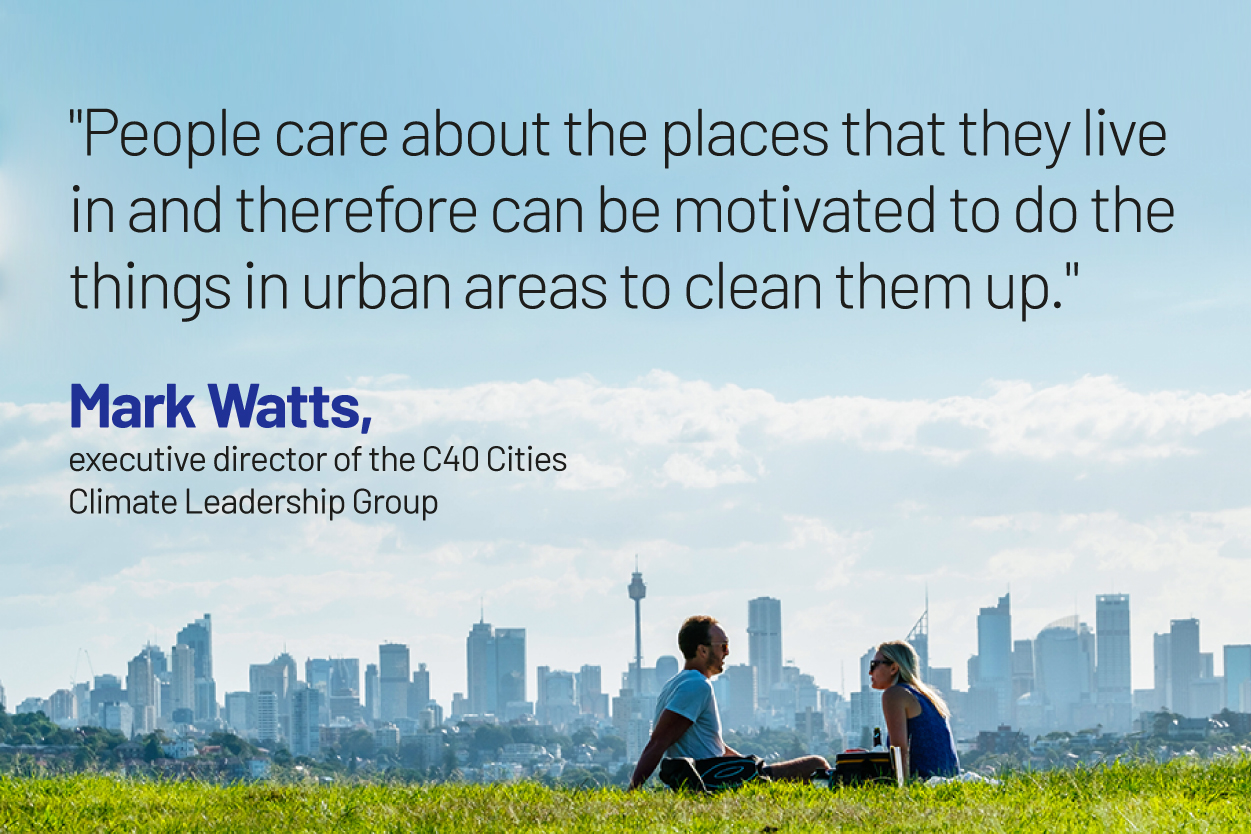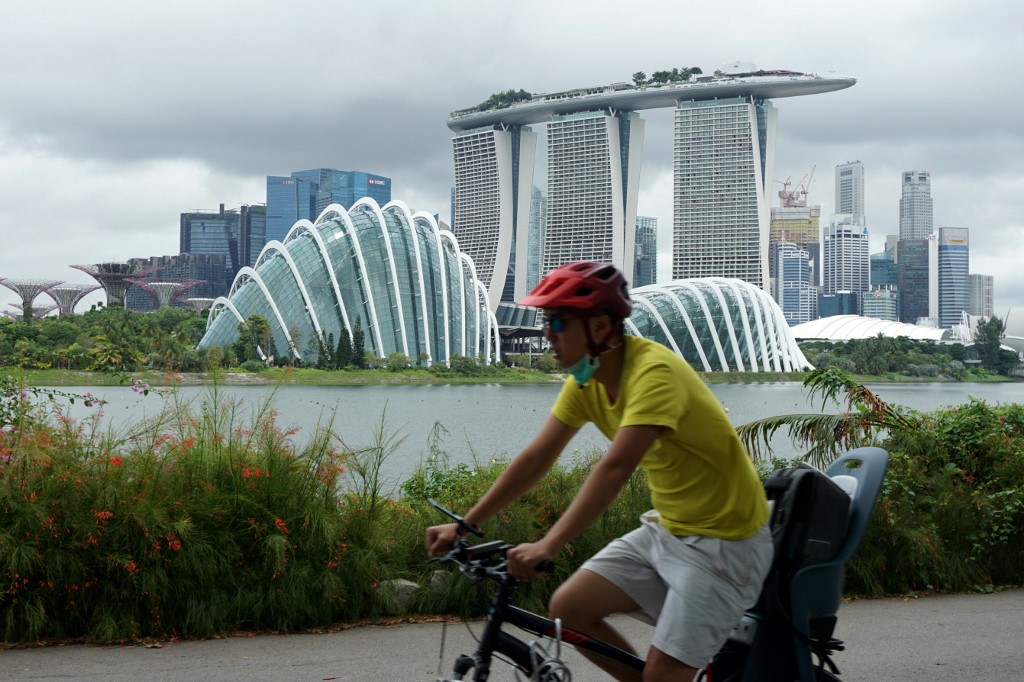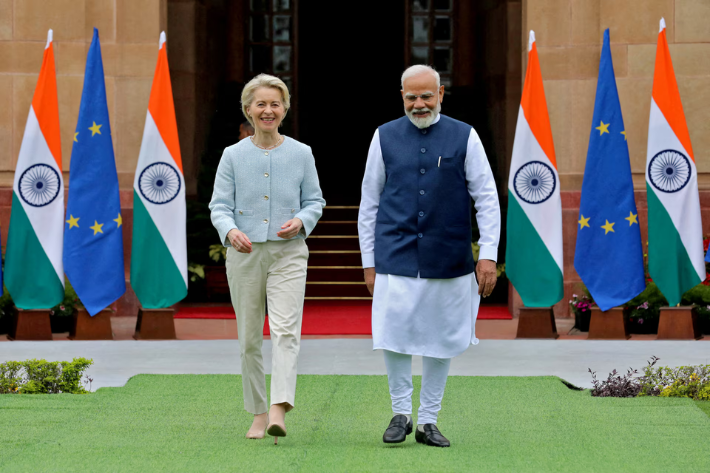City leaders and regional government chiefs will make their debut at the COP28 climate summit, being held in the United Arab Emirates from Thursday, as campaigners bid to make greater progress on climate change, with many having lost faith in national governments.
A failure to deliver action to limit global warming by 1.5 degrees Celsius, as sought under the Paris Agreement in 2015, has seen European delegates and other groups call for “meaningful engagement of cities and regions worldwide”, arguing that “sub-national governments are those in charge of translating global climate goals into practical, localised actions”.
ALSO SEE: China Oil, Gas Giants Accused of ‘Greenwashing’ LNG Purchases
A key advocate due to attend the upcoming summit in Dubai will be Mark Watts, executive director of the C40 Cities Climate Leadership Group for the past 10 years, who says that metropolitan areas are integral to the fight against global warming and in many cases are responding more effectively than their national governments.
Watts is a British expert in urban adaption and policies that cities around the world use to reduce emissions and create communities that are more people-friendly and better able to cope with the extreme weather that is fast becoming a feature of our warmer planet.

Watts, named by Time magazine this month as one of “the 100 most influential leaders driving business to real climate action”, spoke recently with Asia Financial about some of the priorities big cities in Asia, Europe, North America and other regions have been focusing on.
COP has traditionally featured national leaders, international blocs and environmental advocates debating how to best meet the climate challenge, and arguing over who will pay for the transition to clean energy.
The C40 cities – there are nearly 100 now – are the workhorses doing the hard yards of change, whether their national leaders are climate sceptics or not.
Cutting emissions faster than nation states
Watts says the efforts major cities are making – and collaboration they encourage from each other – are having more impact than results achieved by national governments.
“75% of our cities are cutting emissions faster than their respective nation states,” he said in an interview in Bangkok, hours after seeing the city governor and handing over a letter to acknowledge the Thai capital was meeting C40’s climate leadership standards. He had just done a whirlwind tour of four cities in China and was headed to Quezon City in Manila.
“When countries come together in climate negotiations, the talks get stuck as nations argue ‘I’ll only cut my emissions, if you cut yours’,” he said, saying the “failure to collaborate internationally” was holding back the fight against global warming.
Mayors of the C40 cities represent 700 million people and those 100 or so cities generate a quarter of global GDP. “When they come together they’re looking to copy the best ideas from each other and attract investment into their city on the back of that.”
Another key element was people “care about the places that they live in and therefore can be motivated to do the things in urban areas to clean them up, if they believe that their actions make a difference… It’s easier for mayors to engage with people at the local level,” he said, “the impacts are quite immediate”.
Watts was the climate change and sustainable transport adviser to Ken Livingstone, the mayor of London from 2000 to 2008, and helped create the first major city climate action plan and start delivering it. That was a job which required moves to counter traffic congestion, electrification of London’s bus fleet and strategies to lower air pollution. He quickly realised London didn’t have the expertise to deal with these issues.

“We looked at the rest of the world and found a few cities were ahead of us, like Stockholm, Copenhagen, San Francisco, Toronto. And that experience was so valuable, we thought, ‘Why don’t we get this lot together regularly?’ – and the C40 was born out of that.”
The group partnered with US President Bill Clinton’s foundation and then New York Mayor and billionaire Mike Bloomberg “injected his philanthropy” into the group. C40 is like a leadership group which invites cities to join “if the other cities think you’ve got something to offer on exchange of best practice around climate and environment”.
‘Emissions have got to be halved by 2030’
Mayors have to meet leadership standards and part of C40’s job is to hold cities to account and help them set and achieve standards for reducing air pollution emissions and other facets they rate as important.
Climate change was tough “because you’re confronting data that is telling you all the time, globally, we’re losing,” he said. “The science is extremely clear about the existential danger of pushing global temperature 1.5C degrees past the pre-industrial average. And it’s almost impossible now to prevent that from happening.
“Global emissions have got to halve from where they were in 2018 to where they will be in 2030,” he said, but it was also exciting “because there’s incredible collaboration between these big global cities that’s very different from what you get between national governments. They compete by copying the best things with each other, which in the context of climate is a good thing.”
’15-minute cities’ improving air quality
Air quality is one of the biggest issues C40 focuses on. They have cities trying to get to World Health Organisation standards, but Watts said that “there’s no big city in the world that does that at the moment”.

A key method to counter emissions, he said, was just giving people accurate information about air pollution. “Once people know how bad the air is and what it does to their kids, particularly their older relatives, they start to get concerned and want change”.
Low-cost sensors can now give pollution readings all over big cities, so people could find out if the air was bad near their child’s school or the street where they live in. “That tends to really change public attitudes.”
For C40, air-quality standards were a tricky calculation as cities have different levels of development, and that was factored into how such standards were set. “Some of our North American or Australian cities are on target for 65-70% reduction by 2030, whereas in a place like Bangkok it’s going to be a 5-10% reduction, and then a steeper rate in the period after 2030. Some of the African cities, their figures are going to be still rising in 2030, because they’re so low currently.”
Setting up mass transit networks, like the ‘Skytrain’ in Bangkok, which now has lines through many parts of the city, and other methods to reduce car use like shifting to electric buses were important, he said.
“What is really working well universally is changing in the way cities are planned, so they’re not designed for everyone to move around by car, but to use public transport and then walk. The concept of the 15-minute city, where everyone should be able to access the basics – the schools, hospitals, where they work and parks, within a 15-minute walk or cycle – that’s now common.”
Mayors on every continent have been designing their cities based on this concept, which could slash emissions by a quarter by 2050, but he warned that the fossil fuel sector has been “spreading disinformation about 15-minute cities because they make it easier for people to thrive without fossil fuels.”
But Watts said officials in cities as far apart as Shanghai, Paris, Milan, Bogota and Melbourne are all now on board with the idea of “15 minutes to access green space. So I think that is a big success.”
- By Jim Pollard
# This is the first of a 2-part special to mark the start of COP28. The second part can be read here: Cities Give A Glimpse of Changes Sweeping the World.
Read more:
COP28: France, US to Seek Ban on Private Funds for Coal Plants
Global Subsidies For Oil, Gas and Coal Now Reach $7 Trillion: IMF
Fossil Fuel Phase-Out ‘Unrealistic’, China Climate Chief Warns
China Adds Himalaya Peak Weather Station Amid Climate Concerns
India, China Pushing For ‘Multiple Pathways’ to Net Zero
























